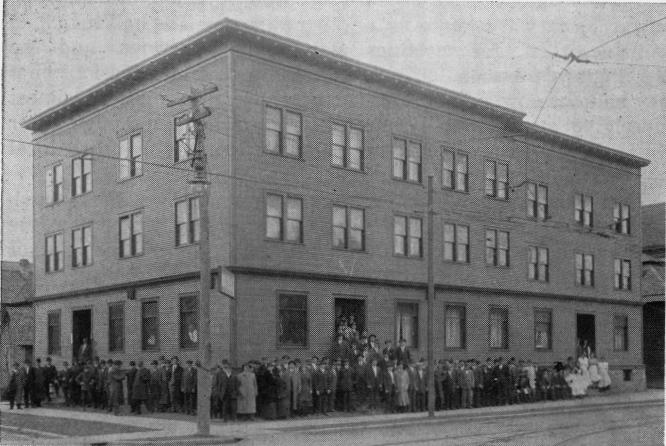young men in Virginia followed the example set in other centers and started their own home and named it Jukola, after the seven Brothers Jukola, the heroes of Alexis Kivi's novel. Jukola was established in 1909 and was operated along the lines of a usual cooperative boarding house, with Selim Ranta serving as its first manager. In 1912, with more facilities proving necessary, a new building was expressly put up for the purpose, with huge kitchens, a big dining room, sitting rooms, a ladies' parlor, and sleeping quarters for a hundred men. During its busiest period, Jukola

Jukola.
used to serve meals to 450 persons daily in its diningroom and was known for its excellent food. Drinking and cardplaying were strictly forbidden on the premises. During 1915-17, Jukola also operated its own grocery store in basement quarters in the building, with the storekeeper being Leo Saari, widely known in the cooperative movement in Virginia.
The residents of the hall were mostly workers in the mines or the sawmills. Most of them also belonged to the Workingmen's Association and were active participants in the Opera activities, and they were also the ones who were most ready to furnish loans to the Association when the Opera was being built. When they were not at the Opera, the young men used to crowd into the big livingroom of Jukola and talk and discuss and argue, and there was always action and bustle from early morning until late at
434